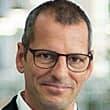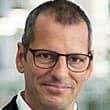Master integrated design strategies combining passive and active technologies to create buildings that achieve net-zero energy performance goals.
Master integrated design strategies combining passive and active technologies to create buildings that achieve net-zero energy performance goals.
Master the art of sustainable building design with this comprehensive course on zero-energy concepts. You'll learn a stepped approach to transform existing buildings into net-zero energy structures across various climates. The course covers both passive measures like thermal insulation and sun shading, and active measures such as heat pumps and photovoltaic systems. Through case studies from the Netherlands and globally applicable lessons, you'll develop skills to analyze building energy use, assess local climate conditions, and create integrated zero-energy design concepts. Ideal for professionals and students with basic technical knowledge in building design or engineering.
4.4
(10 ratings)
24,580 already enrolled
Instructors:
English
English
What you'll learn
Apply a stepped approach to identify energy-reducing measures for buildings
Analyze the energy consumption patterns of existing structures
Assess local climate conditions and select appropriate passive design strategies
Understand and apply active measures for energy demand reduction
Explore opportunities for energy reuse within buildings
Evaluate and integrate renewable energy production systems
Skills you'll gain
This course includes:
PreRecorded video
Graded assignments, exams
Access on Mobile, Tablet, Desktop
Limited Access access
Shareable certificate
Closed caption
Get a Completion Certificate
Share your certificate with prospective employers and your professional network on LinkedIn.
Created by
Provided by

Top companies offer this course to their employees
Top companies provide this course to enhance their employees' skills, ensuring they excel in handling complex projects and drive organizational success.





There are 7 modules in this course
This course provides a comprehensive approach to achieving net-zero energy use in existing buildings. It introduces students to a stepped method for designing sustainable climate concepts applicable to various building types and climates. The curriculum covers energy consumption analysis, climate-appropriate passive and active measures, energy reuse strategies, and renewable energy production. Students will learn to integrate these elements into a cohesive zero-energy design. The course emphasizes practical application through case studies from the Netherlands, offering insights adaptable to different climate conditions. By the end, participants will be equipped to develop integrated net-zero energy concepts for buildings, contributing to the broader goal of a sustainable built environment.
Energy in the built environment
Module 1
REDUCE: Passive measures
Module 2
REDUCE: Active measures
Module 3
REUSE
Module 4
PRODUCE
Module 5
INTEGRATE
Module 6
Wrap up
Module 7
Fee Structure
Instructors

2 Courses
Leading Expert in Climate Design and Sustainable Architecture
Andy van den Dobbelsteen serves as Full Professor of Climate Design & Sustainability at TU Delft's Faculty of Architecture and the Built Environment, and Principal Investigator for the Amsterdam Institute for Advanced Metropolitan Solutions. His research focuses on sustainable buildings, energy systems, and climate adaptation, with significant contributions to urban sustainability and climate-responsive architecture. He has led numerous major research projects including City-zen (energy transition), Climate Proof Cities (climate adaptation), and Better Airport Regions (circularity). His work has garnered over 7,200 citations, with groundbreaking research in thermal comfort, daylight performance, and sustainable energy systems. As chair of NL Greenlabel's scientific advisory board and Dutch Green Building Council board member, he actively shapes sustainability policies while advising the government on energy transition. His achievements were recognized with the 2019 KIVI Academic Society Award for research of major social importance. His approach emphasizes utilizing local renewable resources and translating research into practical solutions for sustainable urban development, driven by his commitment to preserving the environment for future generations.

1 Course
Expert in Sustainable Urban Energy and Climate Design
Siebe Broersma serves as a researcher and lecturer at TU Delft's Faculty of Architecture & the Built Environment, where he specializes in climate design and sustainability. His work at the chair of Climate Design & Sustainability focuses on energy transition and sustainable development across multiple scales, from individual buildings to entire urban regions. He has contributed significantly to various research projects investigating sustainability and energy transition in the built environment, including the development of Amsterdam's energy transition roadmap. His teaching portfolio includes courses on city energy transition and zero energy design, where he shares his expertise in sustainable urban development. Through his research and educational activities, he helps develop innovative approaches to achieving carbon neutrality in urban environments, particularly focusing on the integration of sustainable energy systems at different spatial scales. His work combines theoretical knowledge with practical applications, contributing to the advancement of sustainable urban development strategies and zero-energy building design.
Testimonials
Testimonials and success stories are a testament to the quality of this program and its impact on your career and learning journey. Be the first to help others make an informed decision by sharing your review of the course.
Frequently asked questions
Below are some of the most commonly asked questions about this course. We aim to provide clear and concise answers to help you better understand the course content, structure, and any other relevant information. If you have any additional questions or if your question is not listed here, please don't hesitate to reach out to our support team for further assistance.



